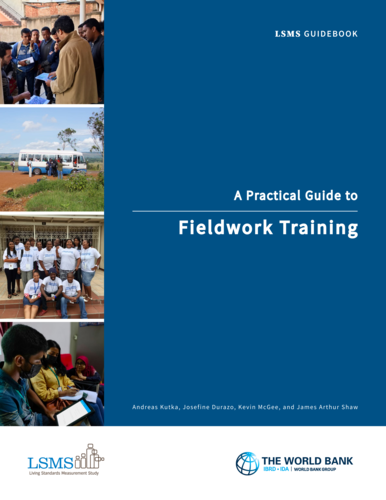
Surveys play a crucial role informing social research, official statistics, and ultimately, public policy design. In addition, in the world of international development, surveys are often the only source of socioeconomic data on welfare and living standards of societies. So, it is paramount that they are of high-quality and yield reliable and valid data.
Far too often, however, survey practitioners adopt suboptimal practices, due to limited expertise, budget constraints and/or lack of appropriate methods for the measurements of interest. As a result, surveys can produce data that ranges from somewhat unreliable to outright misleading, which can compromise the integrity of evidence-based decision-making and translate into bad policy design.
The necessity of collecting high-quality survey data has long been recognized by the Living Standards Measurement Study (LSMS), the World Bank’s flagship household survey program, which continuously works towards improving the design and implementation of surveys. As part of this effort, the LSMS team is developing a series of practical guides to improve survey quality, aimed at providing practitioners with actionable advice and useful tools.
The first edition of this series, A Practical Guide to Fieldwork Training, focuses on providing recommendations for successfully planning and delivering effective fieldwork training, without overburdening trainers or overstretching survey resources. This is one of the most crucial activities in the lifecycle of a survey, but unfortunately, does not receive the attention it deserves.
Something for everyone
Whatever role you have in surveys, this guidebook has something for you.
If you are short on time and just want the highlights, check out chapter 1, Essentials. It outlines the main objectives that fieldworker training should aim to accomplish and provides key recommendations on how to achieve them.
Survey designers or funders can get a quick overview of the resources and time necessary to deliver a successful training in chapter 2, Planning and Preparation. Our recommendations on the training size, timing, duration, location and trainers, help you to effectively allocate limited resources to maximize learning outcomes and improve survey quality.
Throughout the guidebook, fieldwork and survey managers, as well as trainers, will find detailed advice and useful tips for all the training stages, from planning and preparation, and delivery of individual modules, to assessment and selection of fieldworkers.
The guide also includes tools that can be easily adapted for a specific survey. For example, the next time you plan a training program, start with our illustrative schedule - it has been improved over the years and proven to be effective in many trainings.

Harnessing LSMS' expertise and best practices
The guidebook builds upon the extensive experience of survey specialists in designing and implementing complex large-scale national surveys, most notably as part of the World Bank Living Standards Measurement Study (LSMS) team.
The work done by the LSMS has long served as the backbone of welfare and poverty measurement in developing countries. The LSMS routinely advises dozens of statistical offices in Africa, Asia and Latin America; spearheads innovations in survey methods to collect data accurately and in a timely manner; and builds country statistical capacity and expertise.
A Practical Guide to Fieldwork Training also draws from other manuals, previous similar efforts, and insights from the survey methodology literature.
First of its kind for the LSMS, this guidebook has been published online as an e-book on GitHub. It is designed to be a dynamic knowledge base that provides regular updates, as well as new insights and methodologies as they are identified. This new format also makes it easy for anyone to read and share individual chapters, so you can have quick access to the information you need, whenever you need it, and share it with others.
We welcome suggestions for improvements. You can send them via email, list issues on GitHub, or directly edit the e-book. More information about how to use this guide can be found here.
Have a look at the guidebook and let us know what do you think.




Join the Conversation